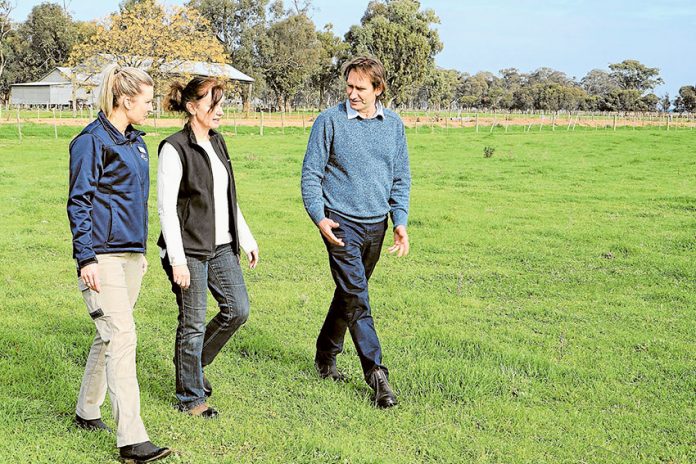

WITH climate change and waste currently hot topics on everyone’s lips, it’s encouraging to see a group of local researchers from La Trobe University working hard to develop a project which aims to curb waste usage, mitigate climate change and improve agricultural practices.
As part of a two-year project unlocking the potential of central Victoria’s organic waste, Dr Jim Radford from the Research Centre for Future Landscapes is taking kerbside-collected food and garden waste from Campaspe Shire and City of Greater Bendigo residents and spreading it over local farms after local contractor, Biomix, had processed the waste.
The organic compost is being spread across trial sites located on cattle farms in Stanhope, Raywood, Kyabram and Arnold.
Dr Radford hopes that the organic compost will improve the soil to increase carbon drawdown from the atmosphere into the soil, where it will remain in carbon form.
“We are measuring how the soil responds – particularly how its biology and structure changes,” Dr Radford explained.
“Our hope is that the compost will increase the soil’s ability to absorb carbon dioxide from the atmosphere by super charging the soil microbes already present.”
Further to assisting with the removal of waste and overall environmental impact, Dr Radford is also exploring whether rotational cattle grazing improves the structure and condition of the soil. In rotational grazing, cattle intensively graze on a small area for a short duration of time, before rotating to new pastures, thereby allowing pastures to rest and recover for longer.
“We predict that the two treatments in combination will encourage more good soil microbes, like bacteria and fungi, to grow, thereby improving soil quality,” Dr Radford said.
“This could improve pasture quality and water infiltration and retention rates and, importantly, enable more carbon dioxide to be absorbed into the atmosphere.
“If successful, we could achieve environmental goals – including reducing Australia’s greenhouse gas emissions – with household waste that was, until recently, just dumped into landfill.”
The project is funded through the Virtual Centre for Climate Change Innovation, an initiative of the Department of Environment, Land, Water and Planning (DELWP).
DELWP community and partnerships program manager, Geoff Caine said, “Local research of this kind plays a vital role in addressing climate change on a larger scale.
“If this project yields significant results, it creates an opportunity to reuse waste and create greater resilience for some farming systems, particularly organic farming.”





